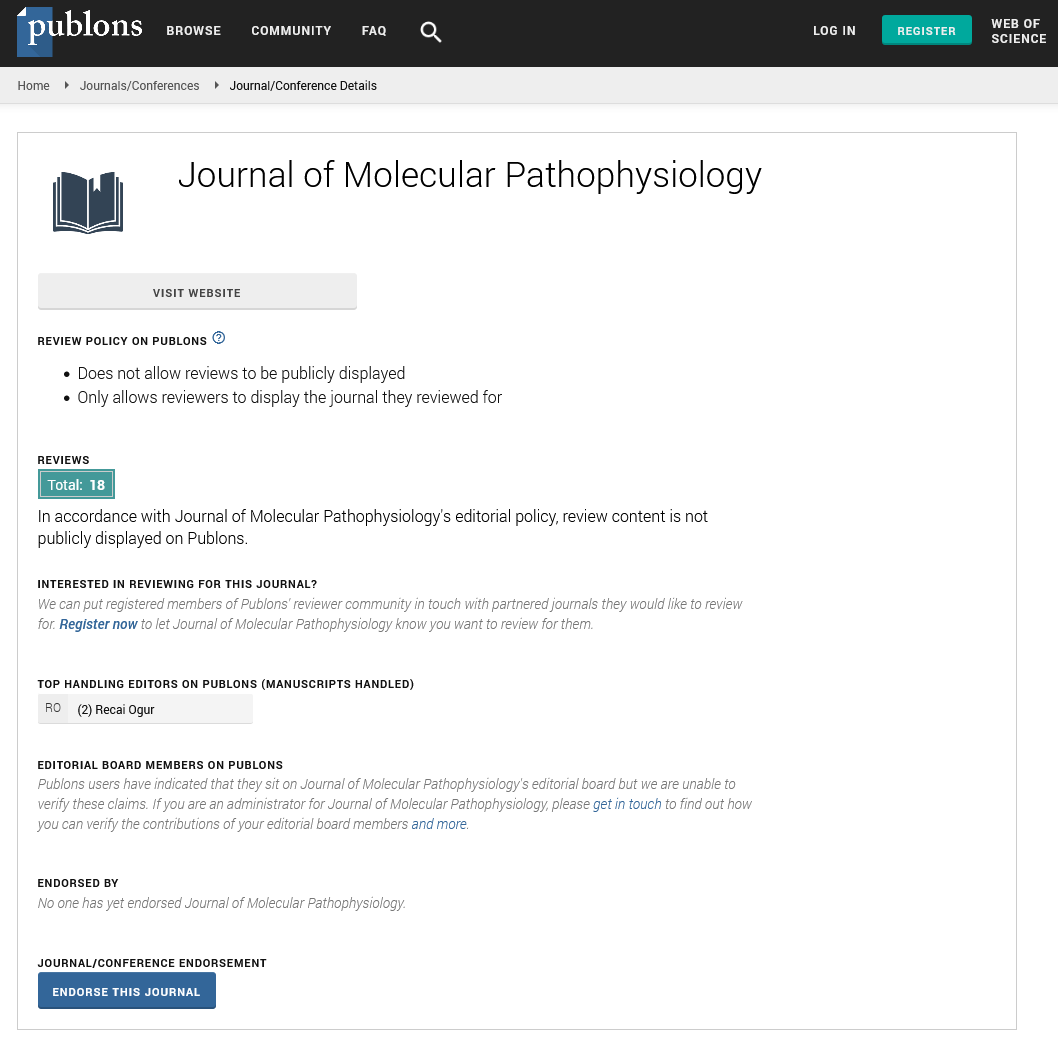The relationship between leptin and arterial stiffness in patients on dialysis
Abstract
Vaia D. Raikou, Anastasia Evagellatou, Despina Kyriaki
Aim: Leptin modifies the systemic inflammatory response and insulin action, but the mechanisms by which it affects vascular disease is unclear. We studied the relationship between leptin serum concentrations and arterial stiffness in dialysis patients. Materials and Methods: We studied 76 patients on on-line hemodiafiltration. Dialysis adequacy was defined by Kt/V for urea. Leptin and insulin were measured by radioimmunoassays. Insulin resistance was calculated using the homeostasis model assessment of insulin resistance. High sensitivity C-reactive protein (hsCRP) and oxidized low-density lipoprotein (ox-LDL) serum concentrations were measured by ELISA. The ratio of LDL/high density lipoproteins was calculated, and serum bicarbonate levels were measured in gas machine. Arterial stiffness was assessed as carotid-femoral pulse wave velocity (c-f PWV) and carotid augmentation index (Aix). Results: We observed significantly positive correlation between leptin and body mass index, insulin and hsCRP (r = 0.397, P = 0.001, r = 0.284, P = 0.02 and r = 0.244, P = 0.04 respectively), but the correlation between leptin and Aix was significantly reverse (r = −0.251, P = 0.04). The higher leptin values were correlated with mildly elevated serum bicarbonate levels, which were inversely associated with hsCRP, c-f PWV and Aix (r = −0.384, P = 0.005, r = −0.719, P = 0.001 and r = −0.527, P = 0.001, respectively). Conclusion: We observed an inverse association between leptin and arterial stiffness may confounded by metabolic acidosis and obesity in dialysis patients.
PDF






